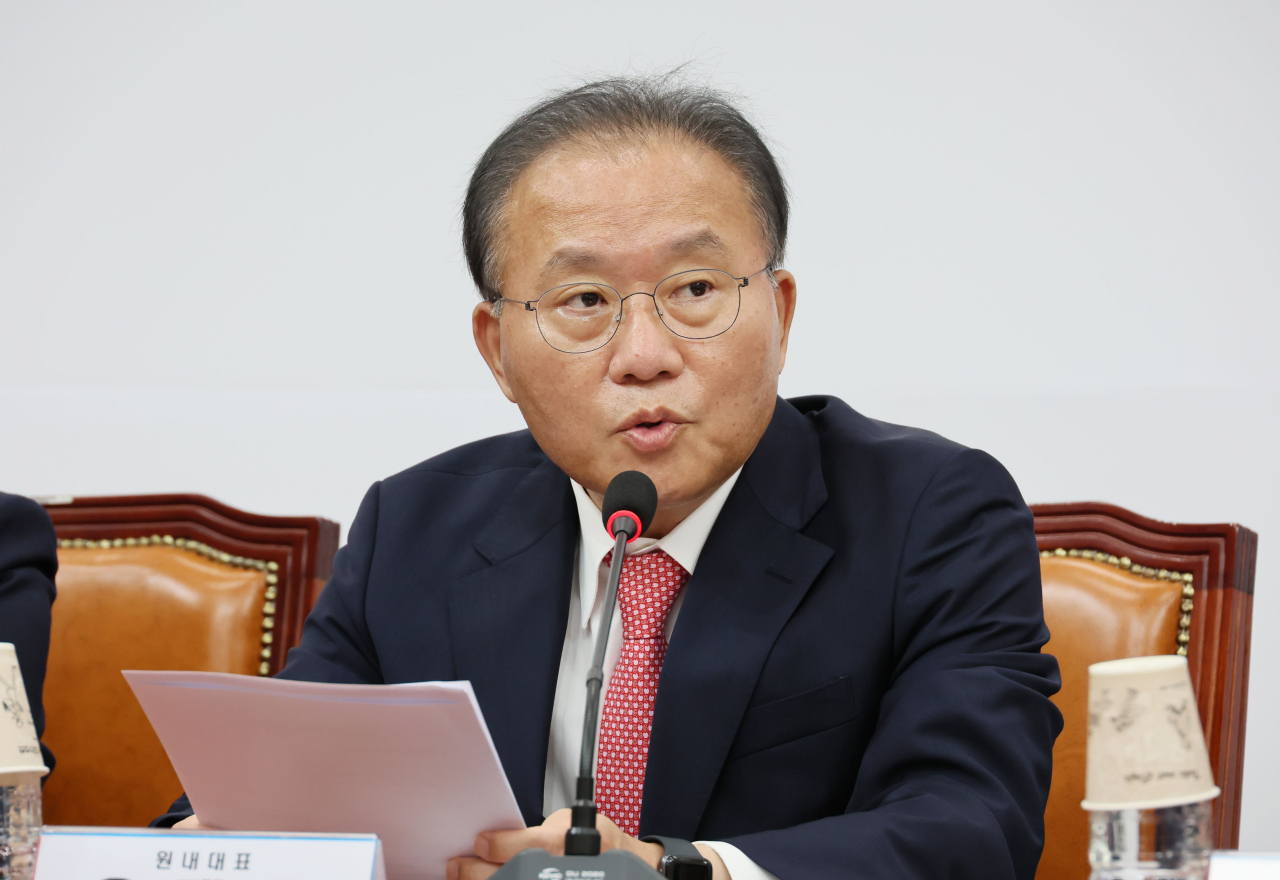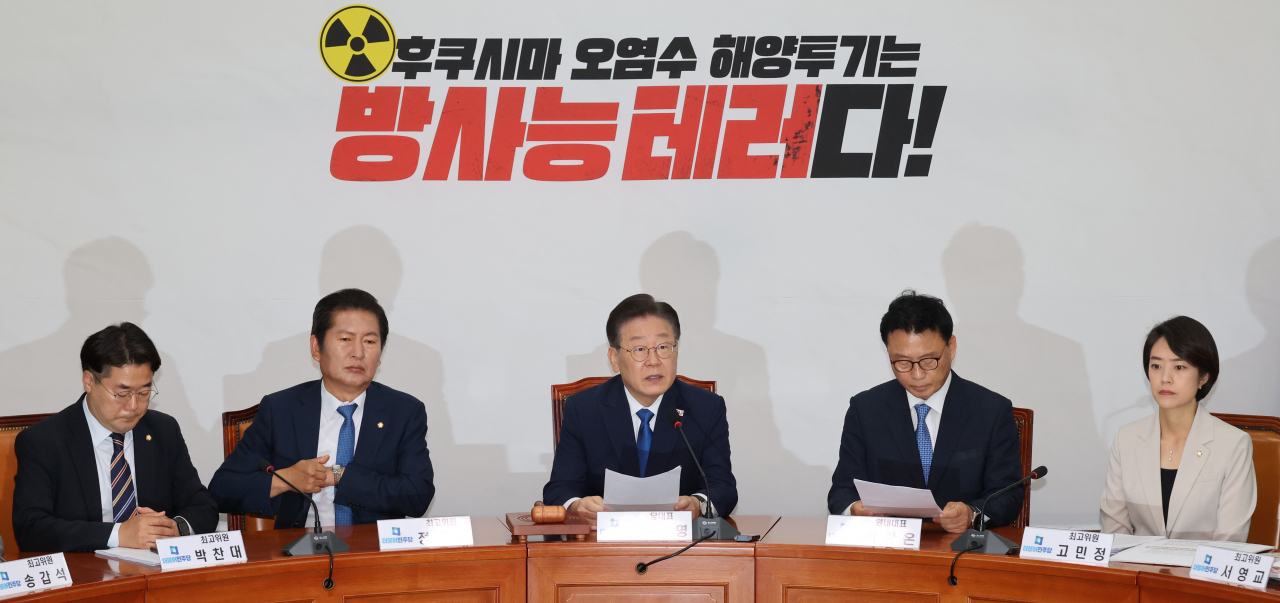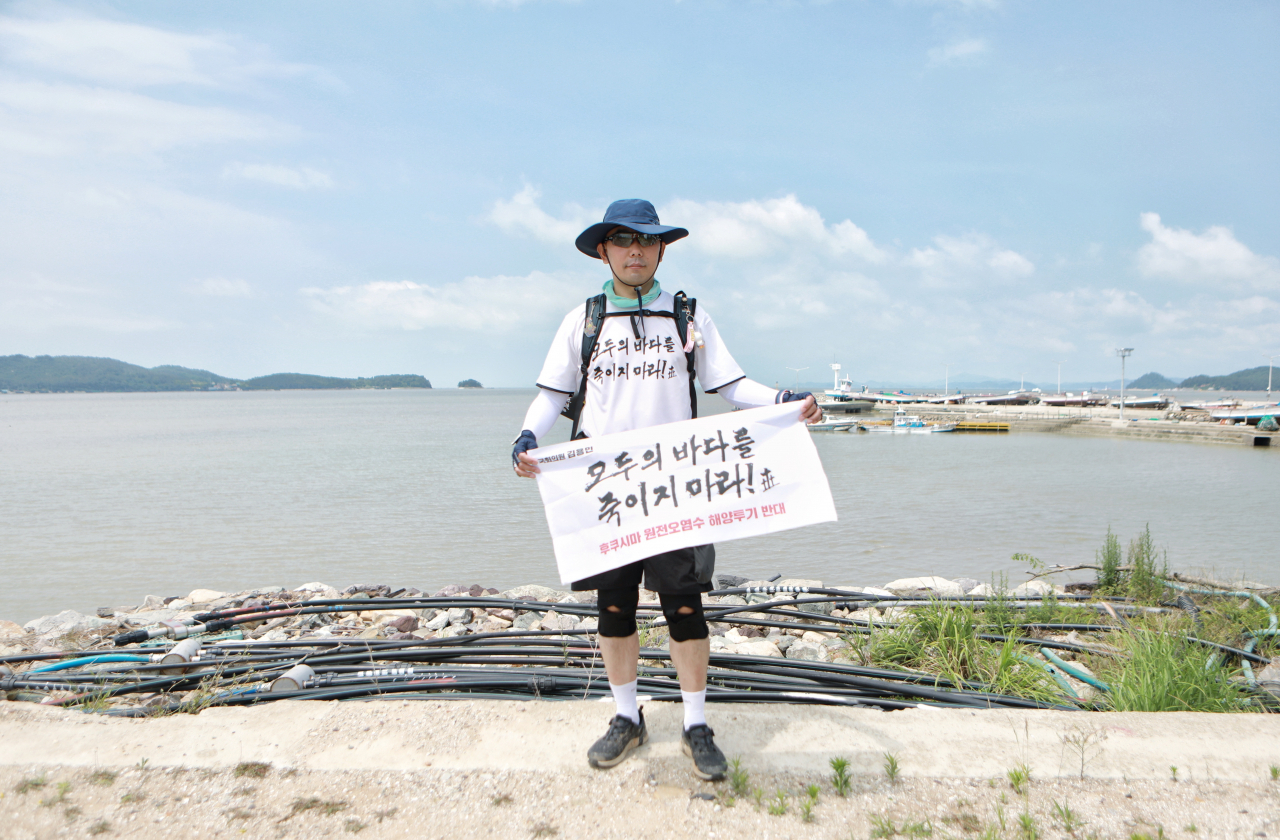‘Japanese seafood ban to continue until Koreans feel safe’
Fukushima water becomes South Korean opposition’s latest offensive against Yoon’s Japan initiative
By Kim ArinPublished : July 3, 2023 - 15:56

South Korea does not plan on lifting its restrictions on imports of seafood from Japanese prefectures around the site of the 2011 triple meltdown of the Fukushima Nuclear Power Plant until Koreans feel safe regardless of the International Atomic Energy Agency’s final findings on safety.
After a meeting with officials from the Foreign Affairs, Food Safety and other concerned ministries held a meeting on Monday, the ruling People Power Party said the ban on Japanese seafood will stay intact if doing so is necessary to allay public concerns.
“You can rest assured that our party does not see it fit to resume imports of the seafood from Fukushima and the surrounding prefectures unless the Korean people feel safe. Our party believes the priority here is to reassure the people, no matter how long it takes, before the restrictions can be lifted,” said People Power Party floor leader Rep. Yun Jae-ok.
But Yun made it clear his comments on the lifting of the ban on imports, made in response to press questions, did not reflect the official government view on the issue, which were not known as of Monday.
“The government may make its separate announcement after the IAEA findings are available. But that’s where our party stands,” the floor leader added.
The remarks come after recent polls suggesting Koreans showing concern about the safety of the Japanese government's plans to discharge the Fukushima wastewater into the sea. A June 27-29 Gallup poll found 78 percent of 1,007 adults aged 18 and above responding they are worried about possible ocean and seafood contamination to be caused by the discharge.

The main opposition Democratic Party of Korea is mounting a full offensive against President Yoon Suk Yeol’s outreach to Japan, citing the imminent release of treated wastewater from the wrecked Fukushima nuclear power plant.
Rep. Lee Jae-myung and the other leaders of the Democratic Party questioned the IAEA’s credibility on Monday, accusing the intergovernmental nuclear agency of leniency toward Tokyo.
“There is a widespread concern that the final report from the IAEA is tailored to Japan and political, rather than being objective and scientific,” Rep. Park Kwang-on, the Democratic Party’s floor leader, said at a meeting of the party leadership.
Park said it is “questionable” whether the South Korean government is prepared to respond to such a report by the IAEA. The IAEA is expected to issue its final report on the safety of the wastewater’s release later this week.
At Monday’s meeting, the Democratic Party once again characterized the pending release of the Fukushima wastewater, which the Japanese government has said will be treated and diluted to legally releasable levels, as an “act of radioactive terrorism.”
Yoon, in a marked departure from his liberal predecessor, Moon Jae-in, has taken a conciliatory approach toward Japan, looking to increase cooperation on shared challenges such as North Korea.
During summit meetings in Seoul and Tokyo with Japanese Prime Minister Fumio Kishida earlier this year, the conservative president sought to improve bilateral ties with a proposal to resolve a long-standing dispute over the forced mobilization of Koreans by the former Japanese empire. His political opponents in Seoul slammed the move as a unilateral concession.
On Saturday, about 100 of the Democratic Party’s lawmakers took to the streets to protest the Yoon administration’s “soft” stance on the Japanese government's wastewater discharge plan. Saturday’s is the latest in the series of weekly rallies condemning Yoon and his policy positions on Japan.
“If Japan unjustly pollutes Korean waters and invades (the disputed isles of) Dokdo, our government should be standing up to them,” Democratic Party chief Rep. Lee told a crowd of supporters gathered in the streets of Seoul’s central Jung-gu district.

Democratic Party lawmakers have taken to individual protests to rally public opposition to the water release.
Rep. Kim Yong-min is on a 800-kilometer tour around Korea’s coastal areas under the slogan, “stop Japan’s radioactive waste dump, protect our seas.” Rep. Woo Won-shik is on a nearly weeklong hunger strike, calling on Japan to retract its plan altogether.
On the other hand, the People Power Party has called the Democratic Party campaigns “anti-science” and “fearmongering.”
“Democratic Party is misleading the public as though it is up to the Korean government to stop Japan from discharging the water. It is not,” Yun, the ruling party floor leader, said.
“In a time like this, the role of politics is to help the public steer clear of fearmongering with available facts and science. The Democratic Party, regrettably, appears to be doing just the opposite of that.”


![[Grace Kao] American racism against Stray Kids](http://res.heraldm.com/phpwas/restmb_idxmake.php?idx=644&simg=/content/image/2024/05/13/20240513050827_0.jpg&u=)





![[KH Explains] Naver’s Line dilemma: Lose global footing for cash?](http://res.heraldm.com/phpwas/restmb_idxmake.php?idx=644&simg=/content/image/2024/05/14/20240514050624_0.jpg&u=)

![[Herald Interview] Carbon breakthrough in Korea: Making diamonds at atmospheric pressure](http://res.heraldm.com/phpwas/restmb_idxmake.php?idx=644&simg=/content/image/2024/05/14/20240514050559_0.jpg&u=20240514184059)








